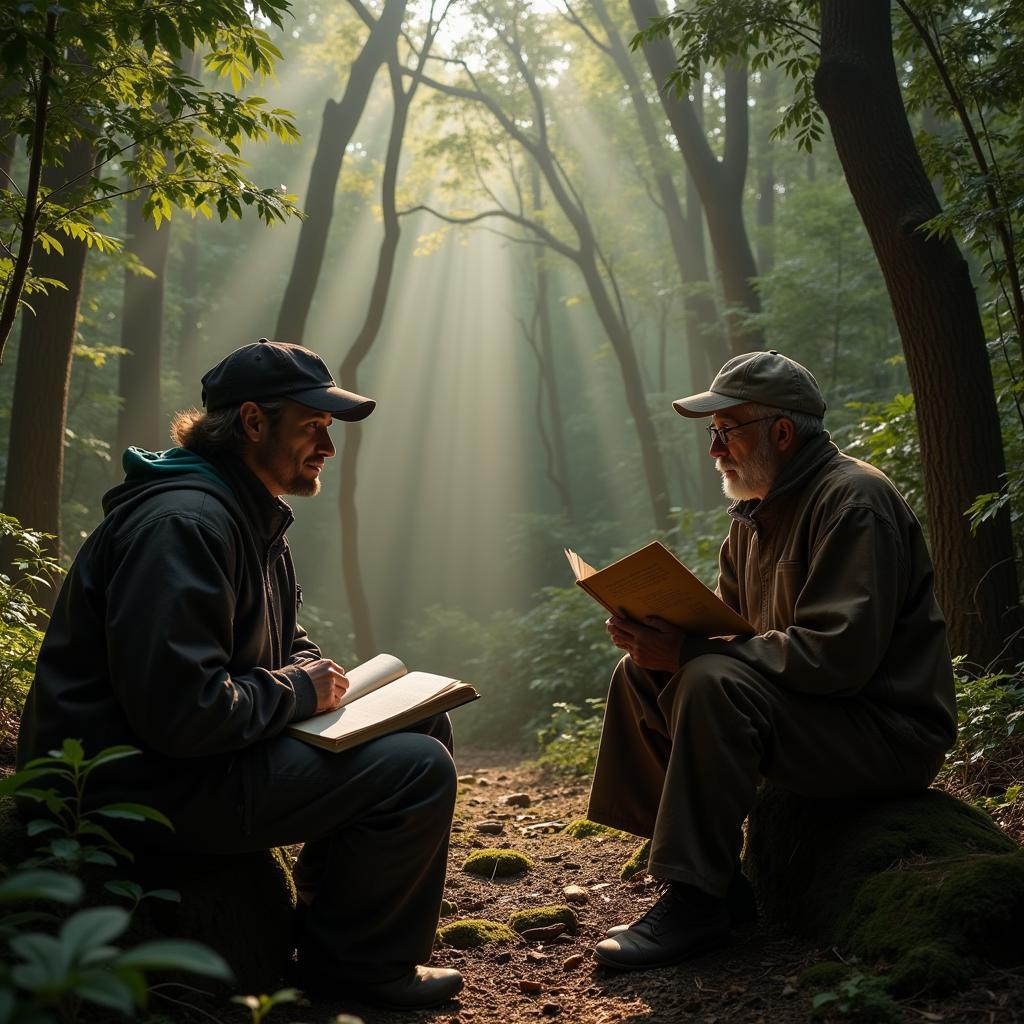The realm of paranormal research, with its intriguing mysteries and unexplained phenomena, has long been a source of fascination. However, the pursuit of understanding the unknown should not come at the cost of perpetuating harmful biases. This is where “Decolonizing Research” takes center stage. It’s about acknowledging that the way we approach the paranormal—the questions we ask, the methods we use, and the narratives we construct—can inadvertently perpetuate colonial legacies.
 Decolonizing Paranormal Research
Decolonizing Paranormal Research
Unveiling the Bias: Why Decolonizing Paranormal Research Matters
For too long, paranormal research, like many academic disciplines, has been dominated by Western perspectives. This often means prioritizing certain types of evidence (typically scientific) while dismissing others (like oral histories or traditional knowledge) as mere superstition.
Imagine, for instance, investigating a haunting. A decolonized approach would consider not just electromagnetic readings but also the cultural beliefs and stories surrounding the location. Does the local community have their own understanding of the spirits? Are there rituals or practices that offer insights into the phenomenon?
 Cultural Sensitivity in Paranormal Investigation
Cultural Sensitivity in Paranormal Investigation
Embracing Diverse Perspectives: A Multifaceted Approach to the Unknown
Decolonizing paranormal research isn’t about replacing one set of beliefs with another. It’s about fostering an environment of respect, inclusivity, and open-mindedness. This means:
-
Recognizing the limitations of Western frameworks: Western scientific methods, while valuable, are not the only lens through which to view the paranormal. Indigenous knowledge systems, oral traditions, and spiritual practices offer unique and insightful perspectives.
-
Prioritizing ethical engagement: When researching paranormal phenomena within a specific community, particularly indigenous communities, obtaining informed consent and ensuring respectful representation are crucial. It’s about collaborating with, not appropriating from, these communities.
-
Amplifying marginalized voices: Actively seeking out and incorporating the experiences and perspectives of individuals from diverse backgrounds—people of color, LGBTQ+ individuals, those from different socioeconomic backgrounds—enriches paranormal research and challenges dominant narratives.
The Path Forward: Towards a More Inclusive Paranormal Exploration
Decolonizing paranormal research is an ongoing process, requiring continuous reflection and a willingness to unlearn ingrained biases. It’s about recognizing that the pursuit of the unknown is best undertaken with humility, respect, and a commitment to inclusivity.
FAQs
1. What is the main goal of decolonizing paranormal research?
The primary goal is to create a more inclusive and equitable field that values diverse perspectives and challenges the dominance of Western paradigms.
2. How can I ensure my own paranormal research is ethical and respectful?
Prioritize obtaining informed consent, collaborating with communities you’re researching, and being mindful of how your work might impact them.
3. What are some examples of non-Western approaches to understanding the paranormal?
Examples include indigenous knowledge systems, oral traditions, shamanic practices, and various forms of divination and spiritual healing.
For those interested in exploring the ethical dimensions of research further, our article on ethical issues in indigenous research provides valuable insights.
Let us continue our exploration of the paranormal with open hearts and open minds. If you need assistance, our team at Paranormal Research is here to help. Contact us at 0904826292, email us at [email protected], or visit our office at No. 31, Alley 142/7, P. Phú Viên, Bồ Đề, Long Biên, Hà Nội, Việt Nam. We are available 24/7 to assist you.